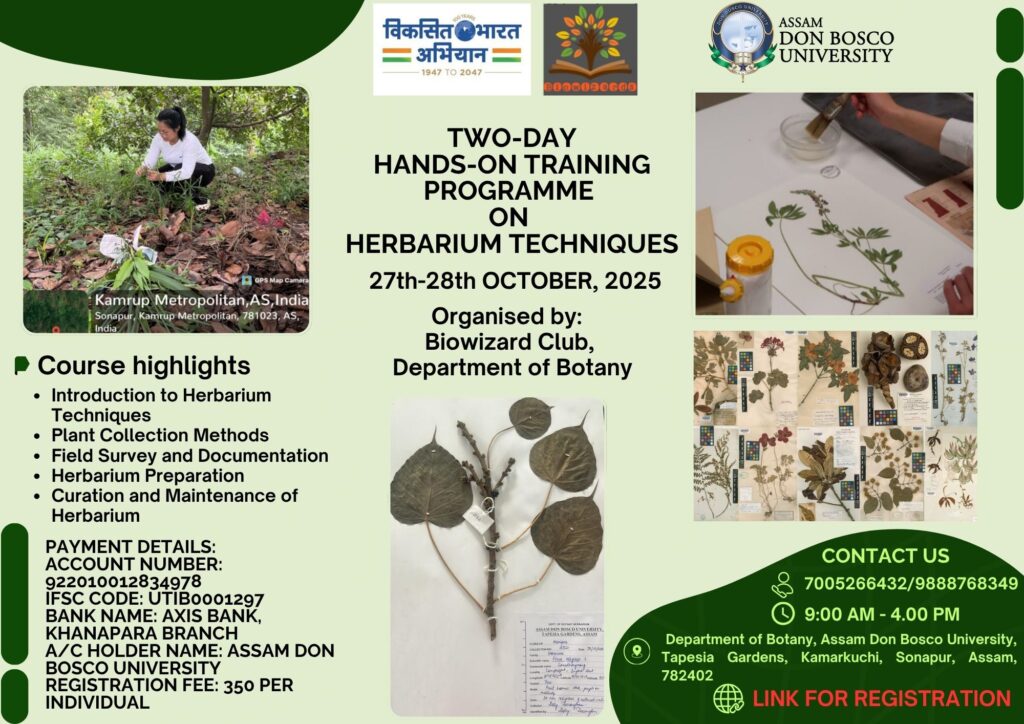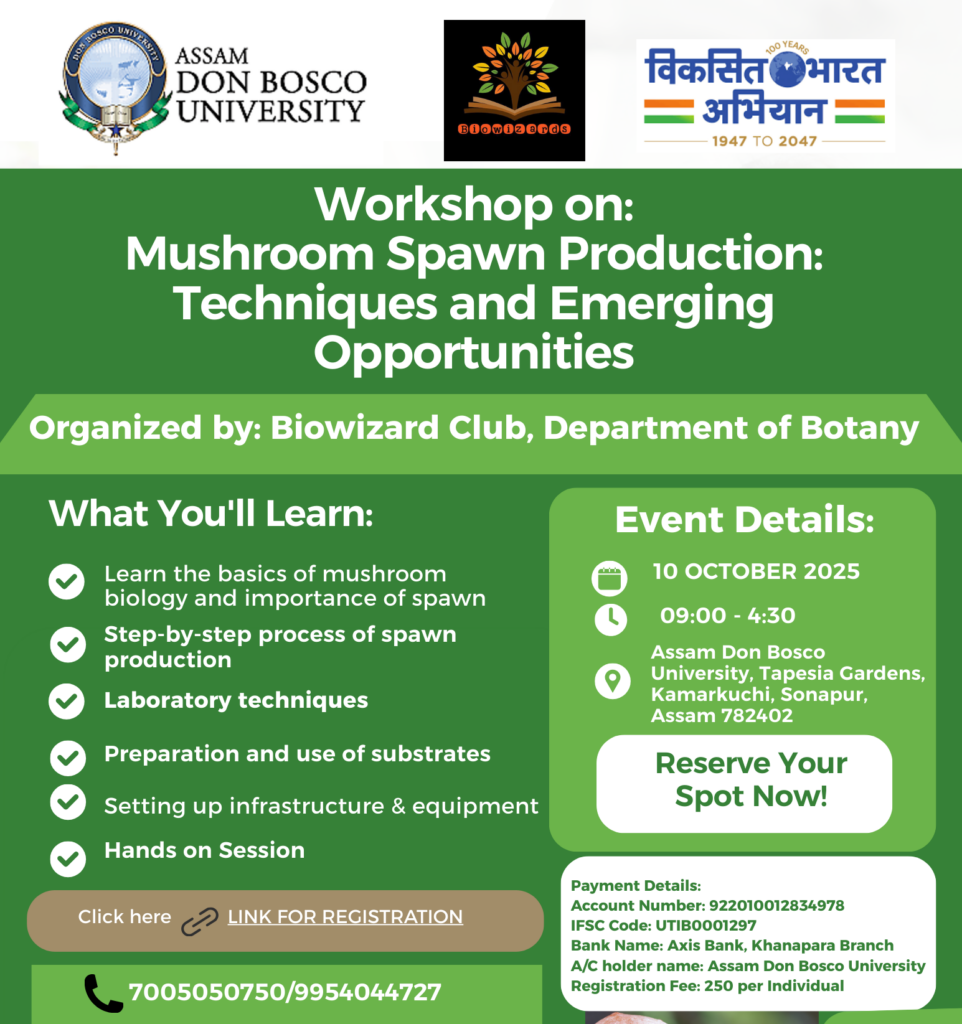🌿 Two-Day Hands-on Training Programme on Herbarium Techniques
Date: 27–28 October 2025
Venue: Department of Botany, Assam Don Bosco University, Tapesia Campus
Organized by: Biowizard Club, Department of Botany
Empowering Students with Practical Botanical Skills
The Biowizard Club, Department of Botany, Assam Don Bosco University, successfully organized a Two-Day Hands-on Training Programme on Herbarium Techniques on 27th and 28th October 2025. The training aimed to equip participants with essential theoretical and practical knowledge related to herbarium preparation, preservation, and curation — core skills for research and documentation in plant sciences.
A total of 60 participants, including faculty members, research scholars, and students from various departments and universities, actively took part in the programme, gaining valuable insights and experience under the guidance of expert resource persons.
Day 1 Highlights – Learning the Fundamentals
The inaugural session, held at Block 1 Auditorium, began with an opening address by Fr. Zacharias George (Registrar), who commended the initiative and encouraged active participation. Dr. Thounaojam Thorny Chanu (Head, Department of Botany) delivered the welcome address, emphasizing the importance of herbarium techniques in plant identification, taxonomy, and research.
The first technical session on “Introduction to Herbarium Techniques” was conducted by Dr. Ashish Kar, who discussed the fundamentals of herbarium science, methods of specimen collection, and identification practices. This was followed by a session on “Importance and Scope of Wild Medicinal Plants: Their Conservation and Future Prospects for Entrepreneurship”, which explored the sustainable use and economic potential of medicinal flora.
Post-lunch, participants embarked on a field collection trip around the university campus, learning hands-on methods for plant specimen collection, documentation, and pressing. Under the guidance of Dr. Ashish Kar and Mr. Devanjal Bora, participants practiced plant drying, mounting, and labeling, reinforcing the day’s theoretical learning with field experience.
Day 2 Highlights – From Preservation to Curation
The second day focused on specimen preservation and long-term curation techniques. Mr. Devanjal Bora conducted a detailed session on “Preparation, Curation, and Maintenance of Herbarium”, highlighting methods of specimen preservation, labeling, and herbarium organization.
Following a tea break, participants engaged in a hands-on training session where they applied their learning in data management and long-term conservation practices. The training concluded with a valedictory session and participant feedback, marking the end of a highly interactive and productive two-day learning experience.
Outcome and Impact
The training programme proved to be highly enriching and impactful, achieving its objective of imparting practical botanical research skills. It enhanced students’ scientific curiosity, technical competence, and appreciation for systematic plant study. The event also fostered a spirit of collaboration and hands-on learning, contributing significantly to the academic enrichment of the Department of Botany and promoting awareness of biodiversity documentation and conservation.






